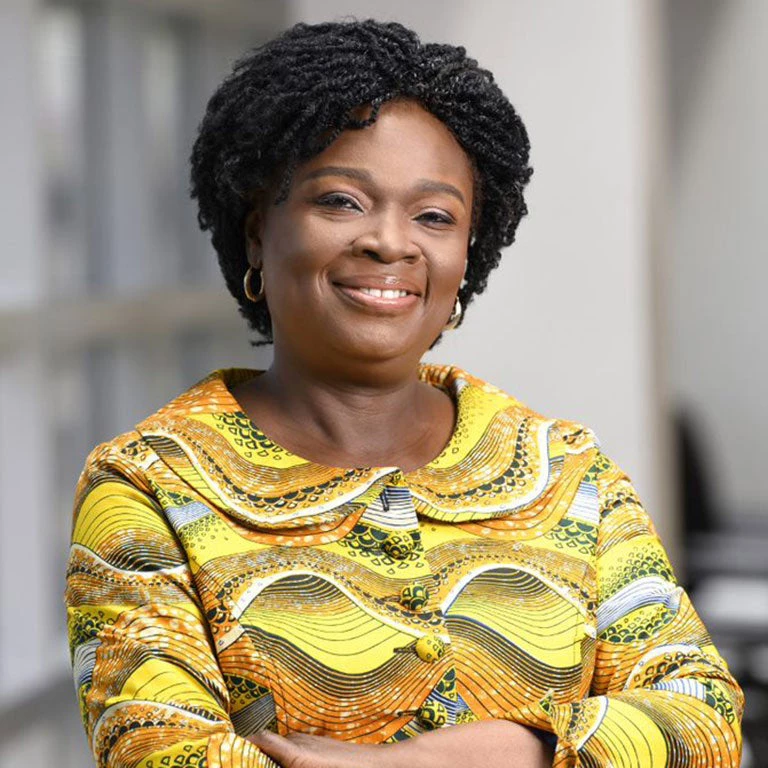 World Bank
World Bank
In the early phase of the COVID-19 pandemic, when lockdowns shut markets and schools, digital technologies became vital for businesses to maintain their activities and for governments to provide services. Financial services grew online and new digital commerce platforms helped better connect farmers with consumers to reduce waste and keep food affordable. But more often than not, women were left behind because of the wide gap in access to digital technologies which persists between women and men in Africa.
On International Women’s Day, I’d like to bring attention to African women who are disproportionately digitally marginalized and call for action to remedy this gap.
Sub-Saharan Africa has among the widest gender gaps in mobile internet use in the world, with over 190 million women not using mobile internet services (a 37% gender gap). A 2018 survey across 16 countries in Eastern and Southern Africa found equally low levels of access to the internet on their phones by female (48%) and male (50%) respondents. In Kenya, only 10% of women used a mobile phone to get information on products and services compared to 22% of men. In Uganda, only 13% of women used the internet compared to 24% of men.
So what’s hindering women’s access to and use of digital technologies? The high cost of devices and data plans combined with women’s lower financial capacity to cover costs associated with digital access is a major barrier, together with low female literacy (including digital literacy), ID requirements, risk of online abuse, as well as a lack of content and services targeting women. In Kenya, 54% of women reported that affordability was the main barrier to getting a mobile phone. In Uganda, 45% of women versus 8% of men experienced online harassment, bullying or stalking. While data on digital skills are limited, it’s telling that women make up only 30% of tertiary ICT graduates in the Eastern and Southern Africa countries where data is available.
Closing the gender digital divide matters for many reasons. Today, digital skills and tools are increasingly essential to access services, such as health, education, social protection and financial services. Moreover, digital technologies are a vector for much-needed jobs on a continent with a growing workforce: in Sub-Saharan Africa, an estimated 230 million jobs will require digital skills by 2030. To compete in the digital economy, countries will need to prioritize education and build the digital skills of their workforce or risk being left behind. This holds especially true for women, whose employment is critical to spur economic growth, increase personal agency and improve health and education outcomes for themselves and their families. GSMA research found that over a five-year period, closing the gender gap in mobile internet use in low and middle-income countries could generate an additional $700 billion in GDP growth.
At the World Bank, we support countries in closing the digital gender divide in several ways, including:
- Supporting affordable and inclusive internet access for all through infrastructure projects, including innovative pricing models and subsidies for women’s access to devices, coverage in remote areas, and public access centers that are safe and accessible to women.
- Integrating a gender lens in ICT policies through sex disaggregated targets, use of gender champions, and opening of procurement opportunities to women-owned firms.
- Building basic skills as well as more advanced digital skills tailored to women’s needs and interests.
- Supporting digitally enabled firms with funding, networks/market access, and skills tailored to women.
- Improving accessibility of products and services (including government services) through digital identification (ID).
In Rwanda, a World Bank financed project is taking a comprehensive approach to tackling gender gaps. It is promoting, for example, access to the Internet and mobile devices through a financing scheme that incorporates incentives for operators and collaborates with women’s groups to improve women’s access to smartphones. It is also tackling low participation of women in the ICT sector by designing women-centered digital skills trainings that ensure gender parity among trainers and considers issues such as suitable times, convenient locations, flexibly and childcare. It includes performance-based targets for female founders in the digital innovation sector, mentorship programs, and access to early-stage financing for women entrepreneurs. And provides technical assistance for the industry regulator to collect sex-disaggregated ICT data on access and use.
In Somalia, where lack of identification documents holds back people’s access to traditional financial services, a World Bank financed project is supporting the roll out of a new foundational digital ID to advance livelihoods and entrepreneurship. Since women are currently more likely to lack an ID than men (the current gender gap in ID access is estimated to be larger than 10%), the project is expected to play a major role in closing gender gaps and empowering women in Somalia.
In Ethiopia, a gender diagnostic conducted in 2019 concluded that closing gender gaps in entrepreneurship, farming, and wages could unlock an additional $3.7 billion in annual GDP for the country. To make good on this promise, the Africa Gender Innovation Lab is piloting and evaluating several digital tools to support female entrepreneurs. For example, businesswomen who lacked collateral were able to qualify for loans through a psychometric test delivered via mobile application – an initiative that helped 62 female-led firms survive the pandemic, with loans ranging from $3,500 to $7,000. A phone-based mentoring platform also yielded meaningful business advice for hundreds of women as well as insights into strategies that make digital tools more accessible to women.
These examples make me hopeful that with a clear focus on digital technology for women, we can boost African economies, increase incomes, and create jobs. Please join my call to accelerate gender equality by making digital technology work for ALL. #Digital4All!


Join the Conversation